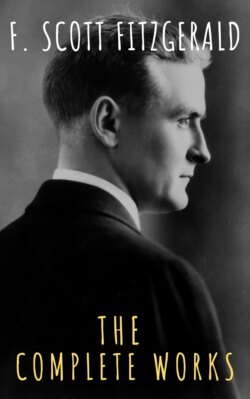Читать книгу The Complete Works of F. Scott Fitzgerald - F. Scott Fitzgerald, The griffin classics - Страница 37
Code of the Young Egotist.
ОглавлениеBefore he was summoned back to Lake Geneva, he had appeared, shy but inwardly glowing, in his first long trousers, set off by a purple accordion tie and a “Belmont” collar with the edges unassailably meeting, purple socks, and handkerchief with a purple border peeping from his breast pocket. But more than that, he had formulated his first philosophy, a code to live by, which, as near as it can be named, was a sort of aristocratic egotism.
He had realized that his best interests were bound up with those of a certain variant, changing person, whose label, in order that his past might always be identified with him, was Amory Blaine. Amory marked himself a fortunate youth, capable of infinite expansion for good or evil. He did not consider himself a “strong char’c’ter,” but relied on his facility (learn things sorta quick) and his superior mentality (read a lotta deep books). He was proud of the fact that he could never become a mechanical or scientific genius. From no other heights was he debarred.
Physically.—Amory thought that he was exceedingly handsome. He was. He fancied himself an athlete of possibilities and a supple dancer.
Socially.—Here his condition was, perhaps, most dangerous. He granted himself personality, charm, magnetism, poise, the power of dominating all contemporary males, the gift of fascinating all women.
Mentally.—Complete, unquestioned superiority.
Now a confession will have to be made. Amory had rather a Puritan conscience. Not that he yielded to it—later in life he almost completely slew it—but at fifteen it made him consider himself a great deal worse than other boys … unscrupulousness … the desire to influence people in almost every way, even for evil … a certain coldness and lack of affection, amounting sometimes to cruelty … a shifting sense of honor … an unholy selfishness … a puzzled, furtive interest in everything concerning sex.
There was, also, a curious strain of weakness running crosswise through his make-up … a harsh phrase from the lips of an older boy (older boys usually detested him) was liable to sweep him off his poise into surly sensitiveness, or timid stupidity … he was a slave to his own moods and he felt that though he was capable of recklessness and audacity, he possessed neither courage, perseverance, nor self-respect.
Vanity, tempered with self-suspicion if not self-knowledge, a sense of people as automatons to his will, a desire to “pass” as many boys as possible and get to a vague top of the world … with this background did Amory drift into adolescence.
